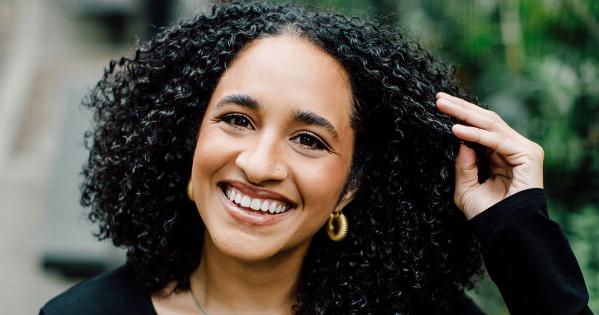Living as a Global Citizen

Welcome to SIS Voices, an ongoing series in which SIS alumni from historically underrepresented backgrounds share their experiences working in international affairs and offer some advice to current and future students who may also find themselves in the minority in their classes and professional spaces. These alumni work in varied fields, and they share a belief that the surest way to realize the SIS vision of “waging peace” is to include all voices in the discussion.
This time around, we hear from Lauren Reese, SIS MA ’16, whose studies focused on the intersection of conflict resolution, climate change, and migration in the Global Governance, Politics, and Security (GGPS) program. After four years as a program manager at Development Alternatives Incorporated (DAI) working on community strengthening work in Southeast Asia, she is now a senior strategy manager at the Trevor Project responsible for launching LGBTQ crisis services for youth in Mexico.
- What sparked your interest in international development and global social justice work?
- My parents’ commitment to social justice and curiosity about cultures besides their own shaped my worldview from an early age. I was fortunate to travel internationally once or twice a year since I was a child. Therefore, I have always felt like a “global citizen” who appreciates our interconnected humanity and is motivated to improve the lives and futures of historically marginalized groups globally.
- What are some challenges and opportunities you’ve found as a Black woman in the field of international affairs?
- The challenges I’ve experienced as a Black woman in international affairs are likely similar to the challenges Black women unfortunately experience in many spaces. I have found it challenging to identify mentors in international development who could provide needed counsel on how best to navigate my career and experiences abroad as a Black woman. I have felt like I had to work twice as hard as my white and male colleagues to prove myself and feared any mistake would jeopardize my professional advancement. I have experienced and witnessed microaggressions that I did not feel empowered to name out of concern that speaking out would impact my “seat at the table.” These challenges are especially disheartening in a field in which one might expect a greater degree of self-awareness and sensitivity given the cross-cultural nature of international affairs.
- When it comes to the opportunities for Black women, the onus is too often put on historically marginalized communities to demonstrate their value. There is not an “opportunity” in being underrepresented and systematically disenfranchised. Instead, the field of international affairs and its institutions bear the responsibility to address structural challenges to the values of diversity and inclusion they espouse.
- What tools/skills/knowledge did you gain from SIS that have proven especially important in your career?
- The SIS skills institutes and practicum were invaluable opportunities to connect my academic insights with their real-world application and gain practical skills that I believe helped me stand out in the post-graduation job search process. Through these experiences, I learned the mechanics of US government international development contracting, budget development and management, basic accounting, and program design and evaluation. I have since built upon these skills to win proposals, oversee multi-year USAID projects, and co-design locally-led programming in Liberia, Pakistan, Kazakhstan, Kyrgyzstan, Myanmar, and beyond.
- What advice would you give our current students of color about what they have to offer as a vital voice in the professional world?
- You, your perspectives, and your lived experiences are valuable, despite what our often unjust and inequitable society and its structures may communicate to you directly and indirectly. Build community with other students and professionals of color who share your values, hold space for you during challenging moments, and celebrate your wins big and small.
- Who are your professional mentors (formal or informal) and how did they come to be your mentors?
- I have a handful of informal mentors that I have established over the course of my academic and professional careers. Some of these mentors I met through work experiences and reached out to when I had difficult career decisions to make or conflicts to navigate. Other mentors were people I admired from afar via LinkedIn, and I reached out to them with the initial goal of learning more about their stories. Through my engagement in Black employee groups, I’ve gained mentors and lifelong friendships as well. It is unlikely that you will find one mentor that speaks to the multiplicity of your needs throughout your career. Instead, be proactive in building a support system of mentors that uniquely reflects your values and goals.
